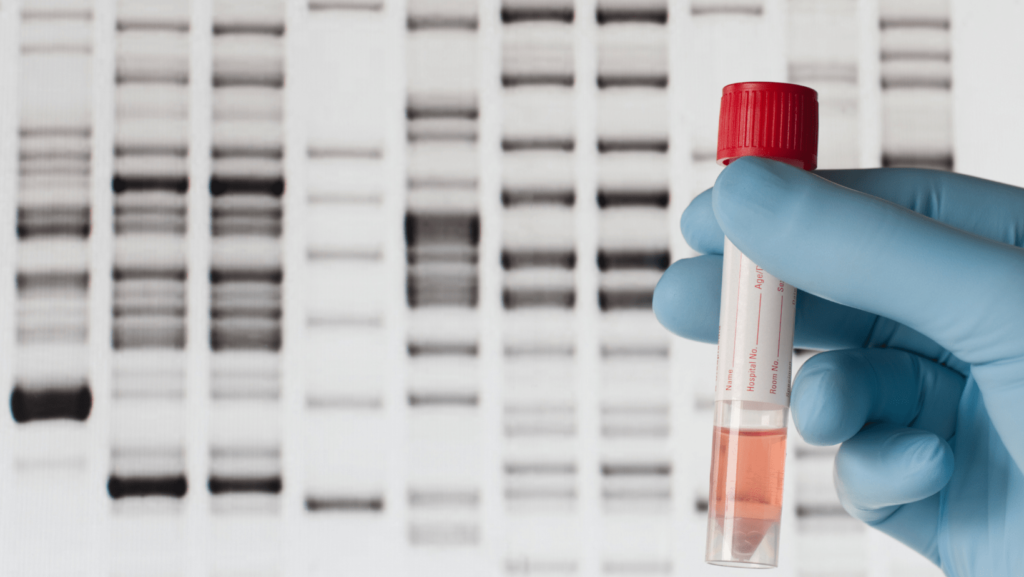We are living longer than ever before, yet we’re not necessarily living healthier. Non-communicable diseases such as cardiovascular disease, cancer and diabetes account for 71% of global deaths each year. These deaths are largely preventable through appropriate lifestyle interventions (World Health Organisation, 2021) – something that understanding DNA & Epigenetics gives us the chance to do.
Rather than simply trying to extend life span, we should instead focus on extending ‘health span’ i.e., the number of years we’re living healthy and well, not just existing. With the pandemic continuing to disrupt the delivery of healthcare, including the diagnosis of disease, the need for preventive and proactive innovation is demonstrated.
By enabling employees to understand their personal predisposition toward disease, employers can empower their workforce to make positive, pre-emptive lifestyle changes much earlier, avoiding the commencement of disease. DNA and epigenetics testing will support employees to make these changes before becoming ill, instead of when they become ill. Interestingly, 78% of employees believe their employer is responsible for their health and wellbeing.
A further 1 in 3 see wellbeing advice based on genetic data as valuable (PAM Group, 2021). DNA and epigenetic testing may prove to be a catalyst not only for a paradigm change in our understanding of health and disease but also in enabling employers to deliver that extra level of wellbeing support that will attract and potentially retain talent – important in the current employment market. With more and more employees delaying retirement age, and with an ageing work population, the risk of getting and managing chronic disease with the subsequent impact on work and life, in general, is much higher. DNA and epigenetics have the potential of delaying or avoiding this.
What is DNA & Epigenetics?

If you find yourself scratching your head at this point, you’re not alone, so, let’s start from the beginning. As humans, we each have between 20,000 and 25,000 genes, and most genes are the same in all of us. It’s the differences in less than 1% of our genes, that make us unique. Understanding what these small differences mean, holds the secret to our health & wellbeing.
DNA is the ‘blueprint’ of the body. It cannot be changed and holds the essential information for development, function and growth. Tiny variations affect how muscles form and behave, how the body uses the major food groups and the likelihood of lacking certain vitamins or minerals.
Epigenetics is the study of how our lifestyle behaviours and environment can cause changes that affect the way our genes work. Epigenetics changes the activity of DNA. It does not alter genes but rather, offers an additional layer of information, letting employees play the cards they have been dealt, to their advantage.
As a practical example, why is it that identical twins develop different diseases? They have the exact same genetic code yet they are epigenetically distinct by the time of birth. These differences become more pronounced with age, lifestyle and different environmental exposures… the answers lie in epigenetics (Carey, 2011).
There are three types of epigenetics markers – histone modifications, non-coding RNA’s and DNA methylation. It is the latter that is key to health and how our DNA is read. DNA methylation can be heavily influenced by our environment such as exposure to metals, air pollutants and endocrine-disrupting toxicants, as well as our lifestyle. Lifestyle includes what we eat and drink, the physical activity we do, our levels of stress and habits such as smoking and drinking alcohol. All of these factors can change the activity of a DNA segment without changing the sequence. They rather turn “on” or turn “off” genes.
Epigenetics has been phenomenal in measuring the ageing process and determining an individual’s biological age. It effectively portrays how lifestyle and environment affect us at both a cellular and genetic level, as well as providing the status of our internal health, such as our:
- Eye health
- Gut health
- Heart health
- Immune function
- Injury risk
- Mental health
- Muscle health
- Skin health
- Sleep heath
- Stress response
Epigenetics testing provides hyper-personalised and actionable insights to support an individual’s lifestyle, all through a simple, non-invasive saliva sample. When accompanied by a mobile application, users can access personalised genetic action plans for their diet, exercise and lifestyle, as well as tailored recipes and training programmes. This means that every outcome comes with the practical tools to either maintain or improve health. What’s more, lifestyle tracking enables individuals to connect their wearable devices to track steps, sleep, activity, heart rate, water intake and calorie intake with their genetic profile to assist with staying on track. Better yet, it can be measured over time, allowing individuals to see the effects of lifestyle on reducing long-term disease.
DNA & Epigenetics in Occupational Health and Workplace Wellbeing

The way in which employees are seeking to access healthcare has changed and offering a simple saliva test unlocks unlimited health potential and provides the ideal provision for employees to deal with the health conditions responsible for driving costs up.
Occupational health is responsible for ensuring that controls put in place by employers protect workers from unacceptable exposures and injuries. New advances in technology allow employers and their organisations to take positive steps towards preventing employees from becoming sick in the first place by identifying individuals who might be at a greater risk due to their genetic predisposition. This means that new innovations, such as DNA and epigenetic testing are set to become key features for both occupational health and workplace wellbeing to shift from the treatment of just one disease (i.e. being reactive) towards the prevention of multiple diseases (i.e. being proactive). Already we’re seeing DNA testing used in cases of repeated sickness absence to understand the root causes of such absences (Brazier, 2021). This makes for a proactive employee care pathway.
Health effects from workplace exposures are usually measured overtime with health surveillance. Epigenetics can be embedded into this to enable more targeted surveillance for those more at risk (Leso, Vetrani, Volpe, Nocera & Iavicolo, 2019). The growing understanding of genetic predispositions and the effect of environmental influences seem to suggest that many occupational disorders share causal roots in gene–environment interactions (Magnavita & Chirico, 2020). This extra layer of information offers personalised prevention strategies, in favour of hypersensitive workers to ultimately lead to better worker protection through the development of more targeted occupational exposure limits (Schulte, Whittaker & Curren, 2015).
Knowledge is power, OR is it too much?
Scientists in both academic and commercial sectors are waking up to the enormous impact that epigenetics can have on human health, but the question still lies of, can we know too much?
We’re human after all so being scared or sceptical is a completely normal response; however, the risks epigenetic data tells us can be addressed and improved.
Knowing this advanced and hyper-personalised information really does help us to reduce the risk of preventable disease and age more healthily. Genetic screening is a non-invasive and efficient technique that allows the prevention and diagnosis of multiple conditions that could prove to be severe. Genome and exome sequencing are anticipated to become the main diagnostic tool to detect and prevent genetic conditions. Though some concerns – as with any tool – remain, genetic screening has proven and continues to prove its efficiency for multiple users and is a guideline for disease prevention and a healthier lifestyle.
Proactive organisations and employers should be encouraged to take Occupational Health and Workplace Wellbeing one step further, with DNA and epigenetic screening, to improve employee health.
Take the next step in occupational healthcare and contact ToHealth at [email protected] to find out more about DNA & Epigenetic testing today.
Looking for more from ToHealth?
Looking to find out more about our Health Screenings? Or interested in supporting your neurodiverse employees and becoming a Disability Confident employer? ToHealth can support you with all of this and more.
One Response